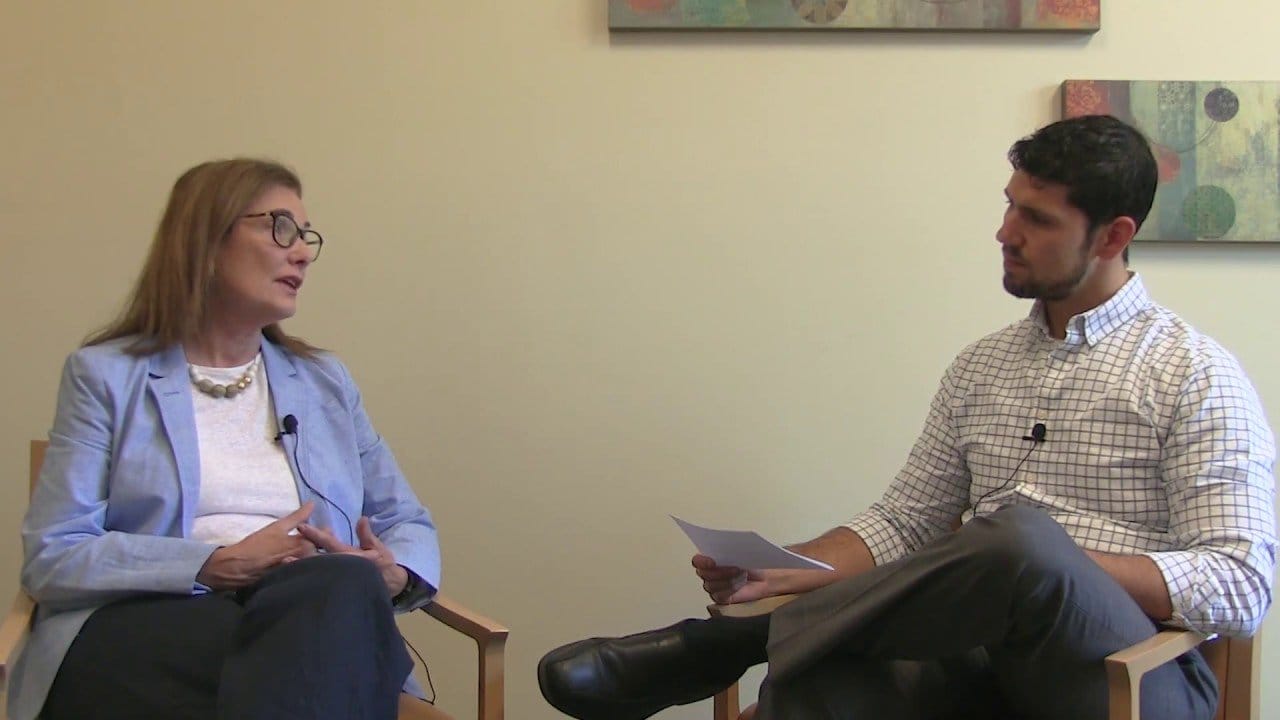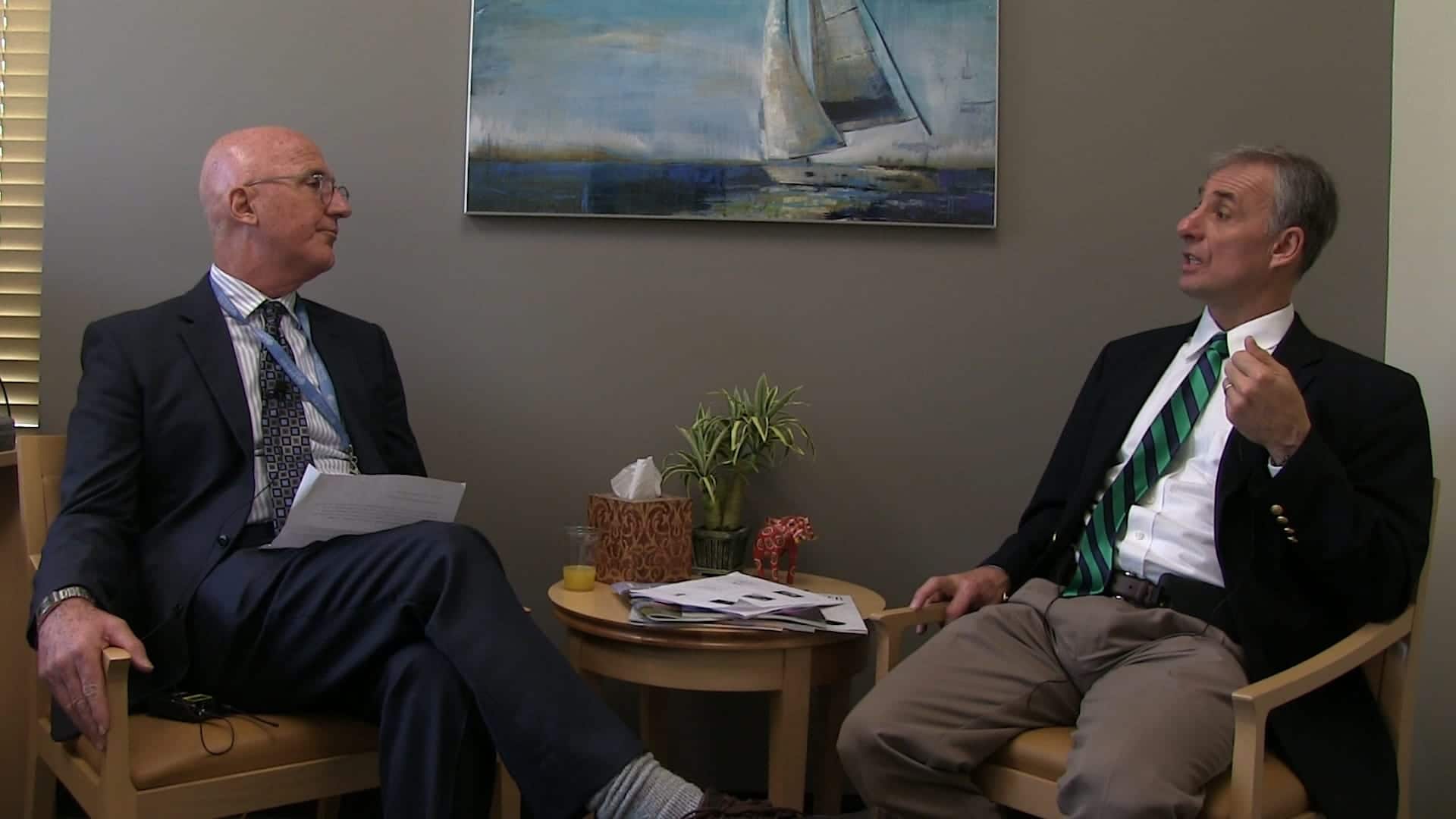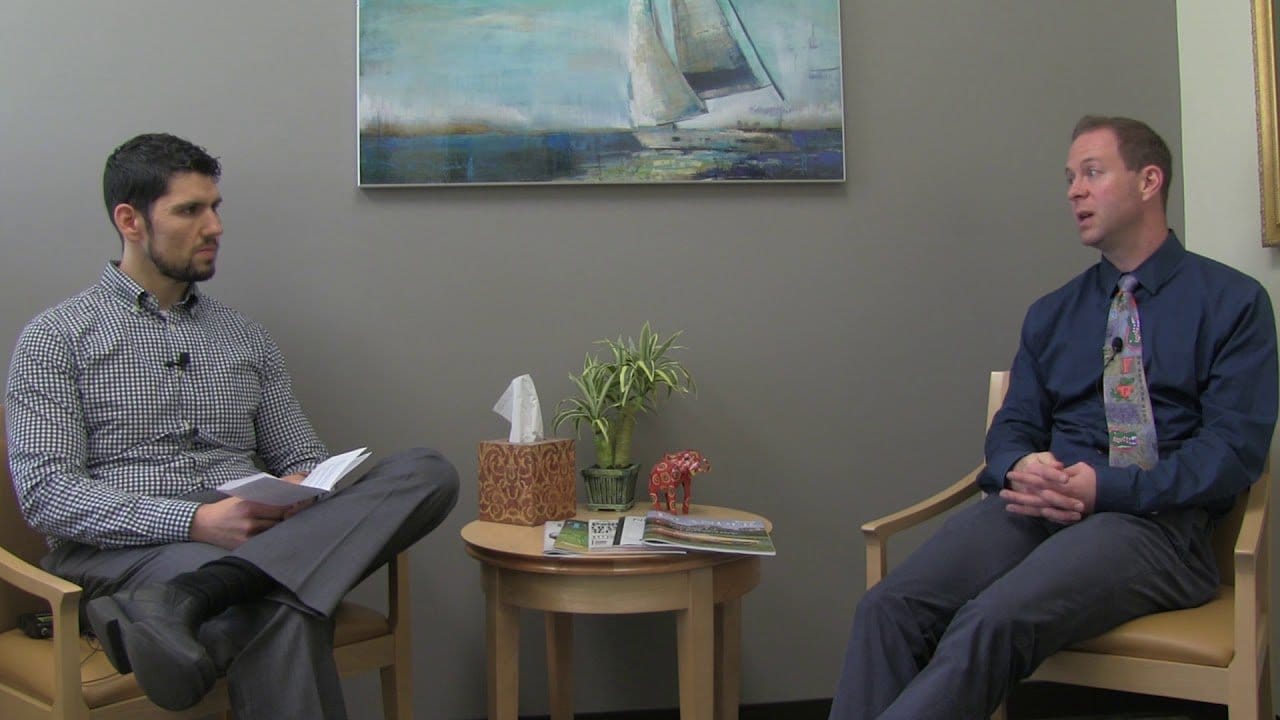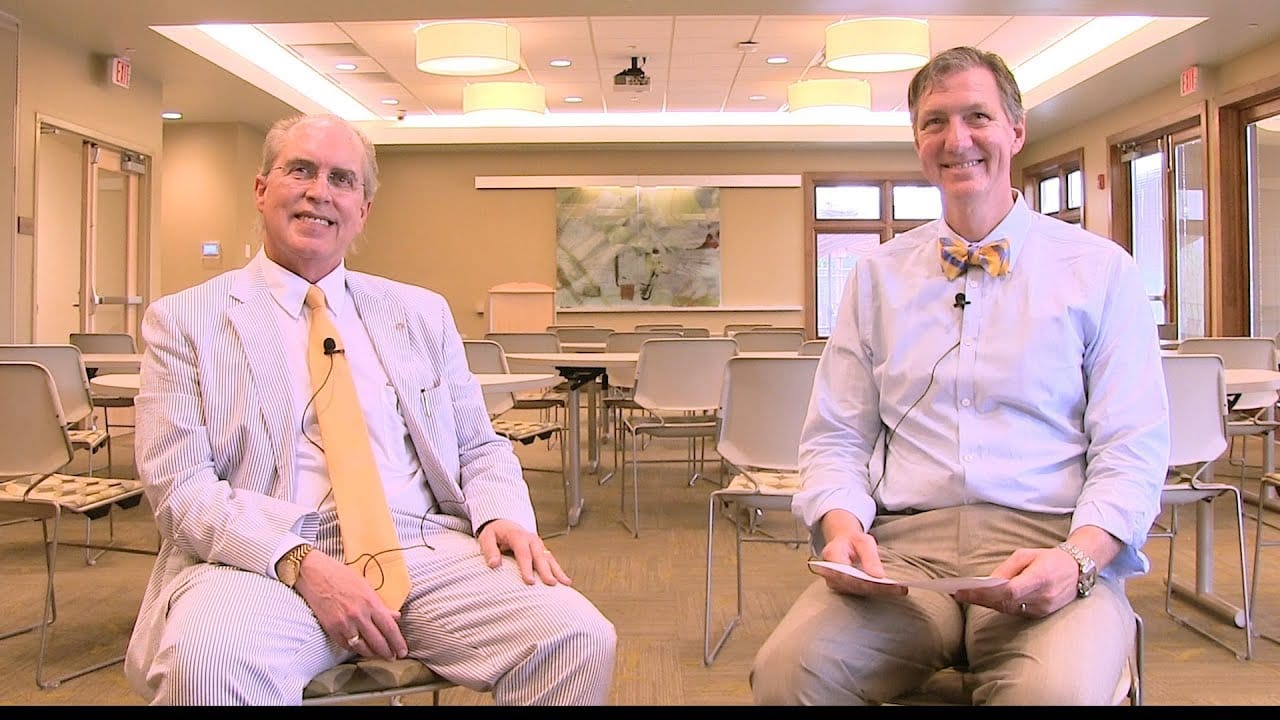Rick Rayl, R.Ph. Talks Current Drug Trends with Dr. Ovson
Rick Rayl, R.Ph. recently visited the Lakeview Health campus to give a lecture on the rising trends of synthetic marijuana and other current trends in the landscape of drugs. After his lecture, he sat down with resident addictionologist at Lakeview Health, Dr. Ellen Ovson, to have a further conversation about the trend and signs of drug seeking behavior.
Video Transcript
Ellen Ovson: Welcome to the Lakeview Health Video Podcast series. I’m Dr. Ellen Ovson. I’m a staff addiction medicine specialist at Lakeview Health, and we are pleased to have, from Denton, Texas, Dr. Rick Rayl, who is the director of Pharmacy at University Behavioral Health of Denton. Welcome, Rick. Rick Rayl: Thank you. Ellen Ovson: We have a few questions for you as a result of your excellent lecture today. You raise concerns about drug trends in substance abuse, and one of the things that you specifically emphasized was the rising use of K2. Can you tell me about your experience with the use of K2 or synthetic marijuana and the implications and complications of that. Rick Rayl: Yeah. I had a speaker come to our hospital to speak about synthetic marijuana a couple of years ago and she basically brought some pictures from the internet, and it wasn’t very informative. I decided at that point that I would do some research and find out more about this because it was concerning. Because we had just had a patient come in that was basically in a fugue state and not able to function at all, who we ended up sending to the state hospital after a month. It was like, what’s going on with this K2? K2, spice, synthetic marijuana all mean the same thing, and what you see with that is an increase in potency over marijuana, but it’s not as euphoric, so you can get the side effects way more than marijuana. Things like arrhythmia and seizure that you don’t normally see with marijuana. You get that with synthetics. The ever-changing landscape, they change the formulas, it changes all the time so that they’re able to avoid drug tests. You basically don’t know what you’re getting. Pretty scary stuff. Ellen Ovson: We did some research and found that drug users are abusing Wellbutrin to produce a high similar to that of methamphetamine and similar to cocaine. Have you seen this as well, and what are your comments about that? Rick Rayl: Well, yes one of the things I did when developing synthetic talks, I looked at other synthetics besides K2, and I was looking at bath salts. One of the things I noticed is that Wellbutrin is a cathinone, which they all originate from that. As I looked into the literature, I found that 75mg immediate release Wellbutrin is being crushed and snorted as a bath salt. It produces the same hallucinogenic and in some times stimulant effect as a bath salt. Ellen Ovson: Does long acting Wellbutrin do that as well? Rick Rayl: No, the SR and the XL aren’t able to be crushed like that, because of the formulation. Ellen Ovson: Okay. What are some things that doctors and pharmacists can do to detect drug abuse or suspect it at least with their patients and how can we prevent further abuse? Rick Rayl: I think we have to look at drugs like Gabapentin that have been helpful in some respects but are being abused in others. As a pharmacist I look for multiple refills, high number, high doses being dispensed, the same urgency of getting the prescription that you see with some of the opioids, that kind of thing. Ellen Ovson: The drug seeking behavior. Rick Rayl: The drug seeking behavior. Exactly. I think doctors would be suspect of the same kind of things with drugs that they may not normally think of as being abused. Ellen Ovson: In your mind, what are the good clinical indications for using Neurontin and what are the ones that are questionable? Rick Rayl: I think neuropathic pain is acceptable. It’s a mood stabilizer. It works reasonably well for that. I think that when you start giving anything to people with addictive disorders, you have to be careful and think that it could be being abused, so whatever you need to watch carefully. Ellen Ovson: Okay. Thank you. We found a video of you on YouTube, called Connecting the Dots with Psychiatry and Medication, where you said that everyone’s brain chemistry is unique, and imbalances account for why psychiatrists chose certain drugs over other drugs to treat patients. What would you say to people that are in twelve-step recovery programs when they’re prescribed psychiatric medications that are often shunned by the twelve-step community? What advice would you give them about the best treatment to restore balance in the brain? Rick Rayl: Well, as we have moved more towards the medical model of treatment of addiction, we’ve developed some medications that can be useful. For instance, clonidine is being used to help in withdrawal, in the withdrawal period, but it’s a very short time. I think you’d be careful what you’re using. You make sure that you’re seeing a doctor that is familiar with addictions, which is sometimes hard to do, because it’s not taught very well in medical school. You want to seek the advice of maybe a pharmacist that understands a little bit about addiction also. You just don’t rush into. You don’t fear it. It’s like a fire, you just respect it. Ellen Ovson: Right. One thing, and I discussed this with you earlier, that I tell all of my patients is before you consider taking anything whether it’s prescribed or over the counter, take it to your pharmacist, and tell them you’re in recovery and ask can you take it? It’s probably the simplest, safest way to avoid relapse in my opinion. Rick Rayl: Good place to start. Ellen Ovson: Well, it’s been a pleasure talking to you today. I’m very pleased that you were able to fly in from Texas. For those who are watching who want to learn more, you can contact Grace-Counseling or you can go to the website, www.grace-counseling.com, or call.




